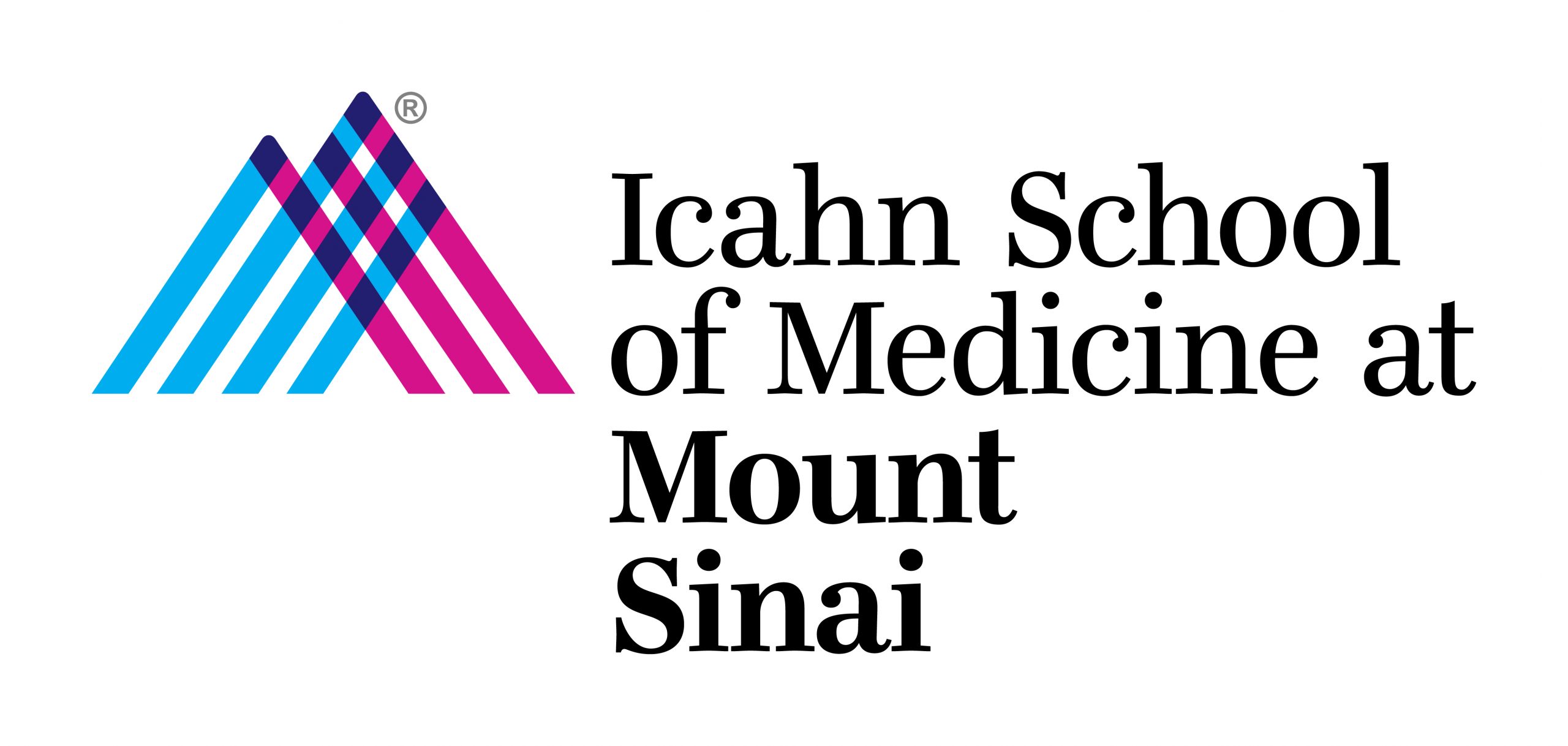The Loewy Laboratory
Our lab studies the integration of music and medicine across a variety of in-patient and out-patient settings. Our research seeks to provide evidence and support in various areas of disease sub-specialties including pain, neurology, pulmonology, oncology, mental health, and intensive care environments throughout the lifespan- from infants to teens, adults to geriatrics. Our studies include doctors and nurses as co-investigators with a focus on specific mechanisms of music and how these influence discreet aspects of functioning. In 2022, near-infrared spectroscopy (NIRS) technology has helped us evaluate the impact of rhythmic entrainment on respiratory function in neonates with respiratory distress. The Louis Armstrong Center for Music and Medicine hosts clinical and research programs at Mount Sinai Beth Israel, Mount Sinai Hospital, Mount Sinai West, Mount Sinai Brooklyn, and within the Manhattan community-the NYC public schools, and with our alliances and partnerships-such as Carnegie Hall Weill Music Institute, YAI, Lincoln Center, and Metropolitan Hospital and multi-site research with Houston Methodist Hospital, Advocate. Children’s Hospital, Tulane Hospital, Northwell Health, Hackensack University Medical Center, Columbia University Hospital, Primary Children’s Hospital among others.
Our Team

Joanne Loewy DA, LCAT, MT-BC
Director
Joanne Loewy is the Director of the Department of Music Therapy, and an Associate Professor at Icahn School of Medicine at Mount Sinai, and a Founding Member of the International Association for Music and Medicine, and Editor in Chief of the international, peer reviewed journal ‘Music and Medicine’

Andrew Rossetti PhD, LCAT, MT-BC
Director of Music Therapy in Oncology
Andrew Rossetti, PhD, LCAT, MT-BC directs the multi-site music therapy oncology programs. His practice extends to the infusion suite, surgery, and the neonatal intensive care unit. Andrew specializes in treating emotional trauma and its sequelae. Having developed several music therapy programs in hospitals in the US and Europe, he has lectured extensively there, in South America, and Asia. He completed his doctorate at the University of Jyvaskyla.

Samantha Sancho MA, MT-BC
Music Therapist

Kristen Stewart MA, LCAT, MT-BC
Assistant Director
Kristen Stewart oversees the Department of Music Therapy and is a PhD candidate at Temple University. She holds two post-graduate certifications in trauma treatment, is a Somatic Experiencing Practitioner and has advanced training in NICU and Neurologic Music Therapy.

Christopher Pizzute MA, LCAT, MT-BC
Inpatient/Outpatient Oncology, Music Therapist
Christopher Pizzute, MA, MT-BC works in inpatient oncology and radiation oncology. He received his MA in music therapy from Montclair State University and holds a BA in music composition/music theory. His areas of expertise extend to palliative, psychiatric, pediatric and neonatal care.

Preanka Singh MPH
Research Coordinator II
Preanka Kaur Singh, Research Coordinator II MPH earned a Master of Public Health from the Mailman School of Public Health at Columbia University, where they also completed a certificate in Public Health Research Methods through the Department of Population and Family Health. With approximately five years of experience, they have worked on a clinical research study at the New York State Psychiatric Institute, exploring the effects of environmental exposures on child health and development. Preanka is particularly interested in developing culturally appropriate therapeutic interventions to address intergenerational trauma within historically marginalized communities.

Stephan Quentzel MD, JD, MA
Medical Director
Stephan Quentzel, MD, JD, MA is a graduate of integrated dual residencies in family medicine and psychiatry. An assistant professor at the Icahn School of Medicine, he teaches psychiatrists and psychiatry residents to collaborate with their primary care colleagues to pursue best practices in approaches to psychiatry.

Tammy Takaishi, M.Ed., MA, MT-BC
NICU Music Therapist
Tammy Takaishi, M.Ed., MA, MT-BC is a Board Certified-Music Therapist with a Master of Arts in Music Therapy from Montclair State University. She has worked in a variety of settings from school-based, home health, to hospice. Ms. Takaishi also holds a Master’s from the University of Missouri-Columbia where she specialized in strings education. Ms. Takaishi is an advocate for the music therapy field having served as a delegate for the SWAMTA region of AMTA for two years, and as a member of the Texas State Task Force for State Licensure for a decade prior to moving back to the East Coast. In her free time, she enjoys running and hosting her creative arts podcast, Creative Peacemeal, which focuses on authentic stories in the arts.

Shantelena Mouzon
Administrative Coordinator
Shantelena Mouzon is the Administrative Coordinator for The Louis Armstrong Center for Music & Medicine. She is a lyricist, performance artist and music producer actively performing in the New York City arts community. Prior to her role in Arts Administration, Shantelena has 20 years experience as a Human Resources, Operations, and Project Management professional in Music, Media and Entertainment
ON-GOING RESEARCH

The Effects of a Music Therapy Respiratory Protocol on Post-Covid-19 Respiratory Symptoms
PI: Joanne Loewy
Site-investigator: Jing-Wen Zhang
Sponsor: CURE-19
Former patients’ of COVID-19 face symptoms of fatigue, dyspnea and other pulmonary dysfunctions. Past investigations of the neurological and physiological benefits of music therapy for patients engaging in breath regulation, and with pulmonary dysfunction such as COPD or asthma show benefits of music therapy. The Louis Armstrong Department’s Music for AIR has successfully used wind instrument playing, singing, and music visualization to ease common symptoms of COPD including dyspnea and fatigue. COVID-19 affects multiple organs and systems. This study examines clinical music therapy – specifically including wind playing, singing, and music visualizations – to see the effects on physical function and quality of life for adults experiencing shortness of breath who have been previously diagnosed with COVID-19. We are testing our previously studied music therapy protocol on patients presenting with continued respiratory symptoms following confirmed or presumed COVID-19 diagnosis over an 8-week period within a virtual group setting. Secondary aims to be monitored are any changes in depression, anxiety, fatigue, sleep, quality of life, and resilience.
Music Therapy Experiences in Patients With Mild Cognitive Impairment (MCI) and Alzheimer’s Disease (AD)
PI: Joanne Loewy
Site-Investigator: Kristen Stewart PhD Cand., LCAT, MT-BC
Interested participants and their study partners enroll upon evaluation of cognitive impairment or mild dementia. Enrollment includes cognitive testing, clinical and neurological evaluation, medical history review and an examination by a dementia physician. Eligible participants undergo baseline testing including linguistic analyses and are randomly assigned to one of 3 intervention groups. Participants and their study partners are contacted at least once every three months for cognitive testing and medical review. Contact with the music therapy team will occur up to twice per week but not less than once per month, for the first six months of study enrollment.


The Effects of Entrainment on Respiratory Stability and Cerebral Oxygenation in Preterm Infants
PI: Joanne Loewy
Site-Investigator: Tammy Takaishi
Infants born prematurely participate in this randomized controlled trial at a corrected gestational age of 24-37 weeks. Randomly assigned to each of the two groups: intervention and control, infants in the treatment group receive six intervention days over a two-week period, 3 sessions per week. Each intervention day consists of each of the two interventions in a random sequence: no intervention/silence and live ocean disc instrument intervention. The sound decibel level is recorded and maintained at 40-65dB to prevent overstimulation. Each infant receives control and ocean disc intervention on the same day in the NICU. Interventions are given in a randomized order (i.e., first ocean disc or first silence, randomized to AM or PM), with observation occurring for 10 minutes before each intervention, 15 minutes during each intervention, and 10 minutes after each per session. There are 3 sessions per week for a two-week randomized treatment schedule. For each infant, data on total apnea time, mean respiratory rate, heart rate, O2 levels and behavior rating during are collected. The sound decibel level is also recorded and maintained at 40-65dB to prevent overstimulation and hearing damage. Near-infrared light spectroscopy (NIRS) data on cerebral oxygenation is collected. Observations are recorded on the infant’s activity or when change occur.
Effect of Music Therapy on Infants With Neonatal Abstinence Syndrome
PI: Joanne Loewy
Site-Investigator: Tammy Takaishi
The purpose of this exploratory multi-site research is to study how live music therapy interventions affect pacification, stabilization, and development of infants diagnosed with Neonatal Abstinence Syndrome (NAS). Neonatal Abstinence Syndrome is a group of problems that occur in a newborn who has been exposed to non-prescribes or prescribed opiates while in the womb. Participants will receive 6 music therapy sessions over a 14-day period based on a randomized treatment schedule of 6 discreet live music therapy interventions.


The Effects of Music Therapy on Adult Patients Requiring Mechanical Ventilation in the ICU
PI: Joanne Loewy
Site-Investigator: Christopher Pizzute
This multi-site study includes 178 adult patients requiring mechanical ventilation. Patients matched for diagnosis, co-morbidities, age, and gender receive music therapy. They are provided with live music-based interventions based on the patient’s cultural preferences (song of kin) and inclusive of entrainment. The primary outcome is seeking a reduction in mechanical ventilation hours of 35% compared to the control group. Secondary outcomes include- amount of sedation, Richmond Agitation-Sedation Scale (RASS), delirium and pain score, ICU and hospital length of stay. The researchers hypothesize that live entrained music therapy compared to control will result in a reduction in the time of extubation, amount of sedation administered, ICU and hospital length of stay.
The Impact of Group Singing on Patients With Stroke and Their Personal Caregivers
PI: Joanne Loewy
Co-Investigator: Andrew Rossetti
Co-Investigator: Christopher Pizzute
This study focuses on the impact of communal singing on stroke survivors and their personal and professional caregivers. 40 post-stroke patients are randomly assigned to two groups: 20 stroke survivors and caregivers (up to 40 total participants) receive 6 months (approximately 24 sessions) of music therapy. Control group of 20 stroke survivors and their caregivers receive standard post-stroke care.
All enrolled participants are assessed on their mood, past music experience and music genre preference (music therapy assessment). They complete the abridged Beck (BDI-2-fastscreen) questionnaire, the stroke and aphasia quality of life scale; a Likert which measures distress; the Western Aphasia Battery (WAB); the NIH Stroke Scale (SS); the Figely compassion fatigues scale; and the driving scene test (Stern and White); as well as the Rankin. In addition, saliva samples are collected from all participants to measure hormone and mood levels at entry and at 6 months.
Participants can attend zoom or live.

Completed Research
Effects of Music Therapy on the Recovery of Patients Undergoing Spine Surgery
The investigators studied music therapy as an incentive and adjunct to a comprehensive spine surgery rehabilitation-recuperation program. The program investigated the use of music therapy as an option for managing symptoms associated with spine surgery recovery. The proposed program investigated the use of music therapy as an integrative treatment within Beth Israel’s Department of Spine Surgery. The study examined the effects of music therapy in managing spine surgery recuperation and to reduce the intensity and experience of pain.
Impact of Music Therapy on Anxiety in Patients With Cancer Undergoing Simulation for Radiation Therapy
This study looked at the effects of a protocolized music therapy intervention on state anxiety for patients with cancer undergoing simulation for radiation therapy. Simulation, which is an imaging and diagnostic procedure, has been identified as producing significantly high levels of anxiety in many cancer patients.
Music Therapy in the Treatment of Chronic Obstructive Pulmonary Disease
In Collaboration with Johnson & Johnson
The investigators combined traditional medical care with an integrative modality – Music Therapy specifically including wind playing, singing, and music visualizations- to study the effects on physical function and quality of life for adults with COPD. The primary goals were to increase respiratory function and reduce respiratory symptoms and hospitalizations in order to improve breathing, functional capacity for activities of daily living, psychological well-being and quality of life in adult age 45 and above who are diagnosed with COPD
The Effect of EMT on Anxiety Levels and Perception of Waiting Time in the Radiation Oncology Waiting Room
This study investigated the effects of environmental music therapy (EMT) on patient and caregiver anxiety levels and perceptions of waiting time for patients undergoing radiation therapy.
The Effects of Music Therapy as a Complementary Intervention in the Treatment of Pediatric Asthma
The onset of asthma is particularly frightening for children. When the symptoms of asthma decrease, children and parents forget about the maintenance and control of breath and lung volume. Because adherence is so poor, asthma is known as the emergency room illness. The playing of a wind instrument is a unique way to provide a creative means for children and teens to understand both the impact of diaphramatic breathing and their ability to control it as well. This study built upon the evidence, though sparse, that suggest that the blowing of a wind instrument with clinical music therapy intervention strengthens the muscles of breathing and fortifies the incentive toward attending to the daily symptoms and general management of asthma.
Effects of Clinical Music Improvisation on Resiliency in Adults Undergoing Infusion Therapy
This study investigated the impact of music therapy on newly diagnosed patients with cancer undergoing chemotherapy. Measurements used at baseline, middle and end of first cycle were the Resiliency Scale (Wagnild and Young 1993); The HADS scale (hospital anxiety depression scale, Zigmond and Snaith 1983 )and and The CAS scale for pain (Color Analysis Scale).
Effects of Live Music on the Perception of Noise in the SICU: A Patient, Caregiver, and Medical Staff Environmental Study
This study examined the use of live music in SICU might affect the perception of noise, which may reduce staff’s stress level and further decrease the possibility of clinical errors, reduce patient’s anxiety and perception of pain as well as increase compliance from patient and family. Live music might also enhance the quality of stay and promote a holistic healing process for the patient.
